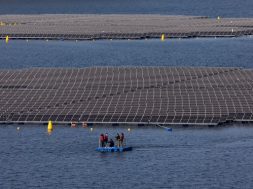
BONSHAW 200 MW SOLAR FARM RECEIVES IPC SUPPORT
The Independent Planning Commission has greenlighted a multimillion-dollar solar farm in the state’s far north.
GAIA Australia Pty Ltd (the Applicant) sought planning approval for the 200 megawatt solar farm on 149 hectares of agricultural land about 16km south of Bonshaw, within the Inverell Shire.
The $238-million Bonshaw Solar Farm Project also comprises lithium-ion battery storage capability of 300 megawatts. It’s projected to create up to 180 construction and 10 operational jobs.
The Department of Planning, Industry & Environment finalised its whole-of-government assessment of the Project in November this year. The state significant development application came to the Commission for determination because the Applicant made a reportable political donations disclosure.
Commissioner John Hann was appointed to consider the application.
He has today (Thursday 3 December 2020) determined to approve the Project subject to stringent conditions of consent.
“The Commission agrees with the Department’s Assessment … and agrees that the Project is in accordance with the [Environmental Planning & Assessment] Act and is in the public interest,” its
Statement of Reasons for Decision concluded.
In assessing the key issue of land-use compatibilty, the Commission noted: “[T]he Applicant selected the Site and refined the development footprint with an aim to minimise adverse environmental impacts of the Project” and “no objections were raised in submissions regarding potential impacts upon the agricultural potential of the land.”
To safeguard the agricultural potential of the site, the Commission imposed a condition requiring the Applicant to rehabilitate the site when operations cease.
The Commission also concluded the development is unlikely to result in significant impacts on the heritage values of the locality; however, it has imposed a condition requiring the Applicant to submit a Aboriginal Cultural Heritage Management Plan prior to carrying out any development which could disturb heritage items, and another which identifies specific heritage items that must not be impacted and those that must be salvaged prior to disturbance.
The Commission states that its conditions of consent are designed to:
• prevent, minimise and/or offset adverse environmental impacts;
- set standards and performance measures for acceptable environmental performance;
• require regular monitoring and reporting; and
• provide for the on-going environmental management of the development.

















